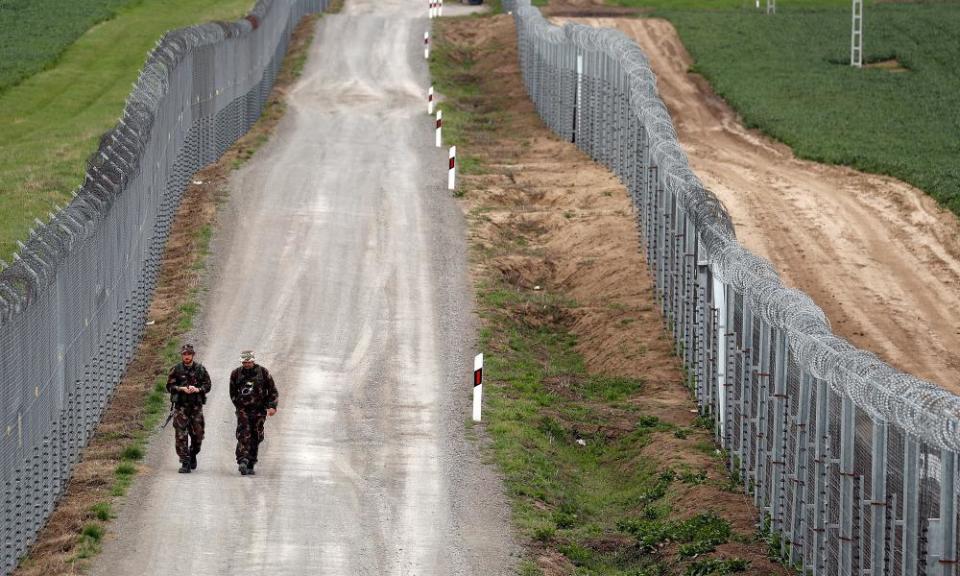Hungary complains Brexit will leave it outnumbered in EU

Hungary’s hardline anti-immigrant government has expressed disappointment at the loss of Britain’s “common sense” from the EU immigration debate.
Its foreign minister said the UK leaving was “worst possible scenario for us” because “our preference would have been for Britain to stay in and migrants to stay out”.
In an interview with the Guardian in Manchester, where he was opening a new consulate general for the estimated 70,000 Hungarians now living in the north of England, Péter Szijjártó said without the UK, Hungary — “not part of the mainstream in Europe” — will be even more outnumbered than it already is. “With you leaving there will be an imbalance in the political debate about the future of Europe,” he said.
“The British always represented positions based on common sense, just like we did,” he claimed. “Common sense when it comes to economy and security and you had a very pragmatic approach when it was about the major challenges ahead of the European Union – based on sovereignty, role of national parliaments and so on and so forth.
“So with you leaving, this political debate about the future of the EU will be unbalanced in an unfavourable way from our perspective.”
Szijjártó defended Hungary’s decision to build a hard border to stop illegal migrants coming from the Middle East and Africa, and its new law that punishes anyone found to be helping asylum seekers.
“If you look back over the past three and a half years, you will see that illegal migration is definitely the cause of security threats,” he said. “No question.
“If 1.5m people are allowed to enter Europe without any sort of control and any sort of check then it definitely gives the opportunity for people with bad will to come. And it definitely offers the opportunity for terrorist organisations to send their troops and activists.”

However, many of the terrorists responsible for the worst European attacks in recent years are “homegrown”. Chérif Chekatt, who is being hunted by police in connection for the latest attacks in Strasbourg, was born there in 1989. Most of the men behind the Paris attacks of 2015 which left 130 dead were born in Belgium or France, though two were from Iraq. Salman Abedi, the Manchester Arena bomber, was born in Manchester.
Szijjártó said he sympathised with the UK over what he said was its harsh treatment by the EU since the 2016 referendum. “In the beginning at least, I did feel a kind of willingness for revenge on behalf of some bureaucrats in Brussels, to show the British that they have made the worst possible decision of their whole life,” he said.
Such bureaucrats, he said, were the same ones who “usually criticise us very heavily and make accusations against Hungary”.
European Union lawmakers this year debated whether to sanction Budapest for allegedly undermining the bloc’s values on issues such as migration after a report accused Hungary of violating “the fundamental rights of migrants, asylum seekers and refugees”.
But Szijjártó insisted it was not hypocritical for Hungary to operate such a harsh immigration policy while also offering political asylum to Nikola Gruevski, the former prime minister of Macedonia, who fled the country last month rather than report to jail to serve a two-and-a-half-year sentence for corruption.
Albanian police said Gruevski “exited Albanian territory on 11 November as a passenger in a car owned by the embassy of Hungary”.
But Szijjártó categorically denied that the Hungarian foreign ministry or intelligence service helped him cross the border and insisted the Macedonian fugitive entered Hungary legally: “Gruevski travelled with proper documentation.”

 Yahoo News
Yahoo News 
